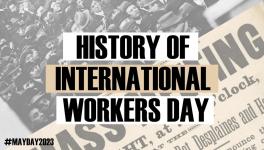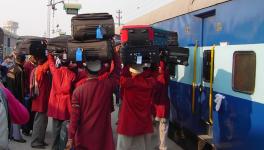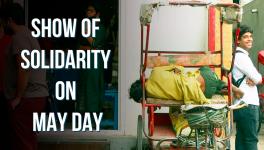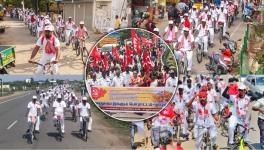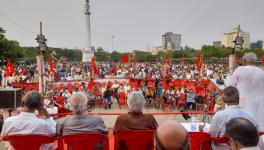“Unions Have to Look Deeper into the Real Problems Affecting People’s Livelihoods”
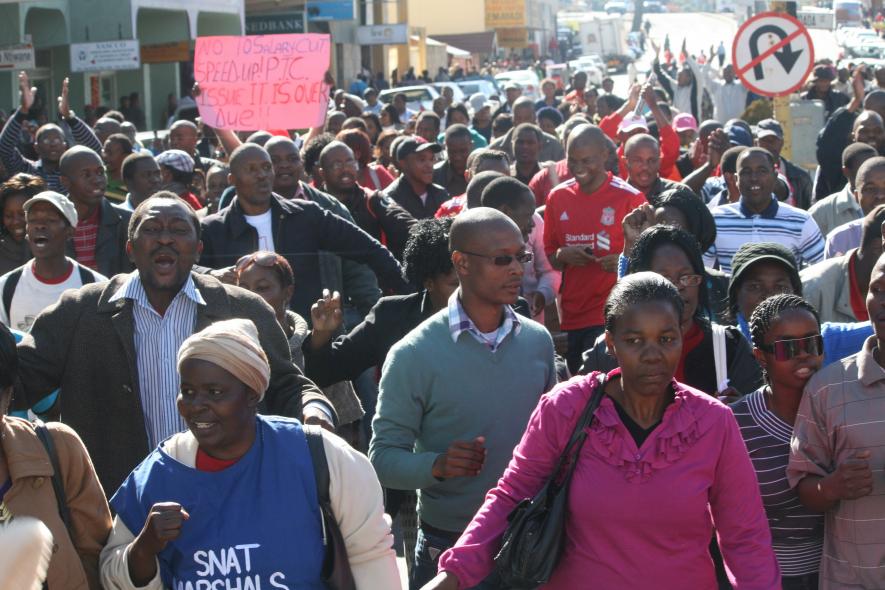
"Currently, unions constitute the most important voices and vehicles that the people of Swaziland can use to advance a struggle," says Dlamini (Photo: Inter Press Service)
The Swaziland National Association of Teachers (SNAT) has led the country’s teachers in their struggles since 1928, when the country was under British rule. Originally, the organization was conceived as the Swazi National Union of Teachers (SNUT). However, in 1973, the then monarch banned all political parties and public meetings that did not have written permission from the commissioner of police. Trade unions, which were regarded as political organizations, came under increasing crackdown.
The organization was ordered to drop the union status, following which SNAT was formed as an ‘association’. Despite arrests, police assaults and other forms of state repression, the association has been at the forefront of the agitations to further the teachers’ interests. Teachers are among the lowest paid civil servants in the country, which is ruled by an absolute monarch who reigns above the law.
On the International Workers’ Day, in order understand the contemporary struggles of this ‘association’ and the challenges it is tackling, Peoples Dispatch interviewed Njabulo Dlamini, one of the branch leaders of SNAT.
Peoples Dispatch (PD): Tell us about the different issues around which SNAT has organized struggles over the course of the last one year, and about the successes as well as the unresolved issues that remain.
Njabulo Dlamini (ND): For the past three years, SNAT has been pursuing a struggle for cost of living adjustment. It must be mentioned that public servants have been without adjustments to their salaries since 2016. This is amid the ever increasing taxes to sustain the lavish lifestyle of the royal regime of Swaziland. This struggle has seen government attacks on some of the leaders and teacher activists.
On 25 August 2018, after a night vigil that the teachers had organized to pray for [relief] from their conditions of perpetual deliberate impoverishment by the Mswati autocracy, the royal police opened fire and shot comrade Willy Dlamini on his left arm.
Comrade Maxwell Myeni, who showed bravery by blocking the gun wielding police, was arrested and had false charges slapped against him. There is also a case now against the president of the union, the charges against whom are unclear. The charges are constantly increased and altered, which clearly shows a ploy by the regime to bash union activities.
We have other departmental issues that have not yet been resolved. There is the issue of pay according to the value of work performed. Teachers are not well remunerated as compared to other government departments and qualifications do not even matter to the employer, the government.
There is also the casualization of the teaching profession, where the government is now employing teachers on fixed contracts. There is also the looting of the pension fund by the government. In fact, there are plenty of issues that need SNAT’s attention which have been derailed by the struggle for cost of living adjustment.
PD: While the King and his royal family continue their lavish expenditure on luxuries, the budget allocated for public services is being squeezed. How has this affected the teachers?
ND: Resources that would have gone to providing service to the people are channeled to the royal family for their lavish lifestyle, parties and festivities. As the royal family expands, the government opts for tax increase on workers, which then hits hard on the average worker, teachers included. The taxes keep increasing while salaries remain stagnant, and this makes life difficult for teachers who are among the low paid civil servants in the country. More teachers are in debt and survive by borrowing from loan sharks.
PD: What are some of the other unions with which the SNAT has mobilized the teachers for joint struggles?
ND: SNAT fights along with other public sector unions: SWADNU, a craft union for nurses, SNAGAP, a union for government accountants, and NAPSAWU, a National Amalgamated Public Servants Union. For issues of common interests, like the cost of living adjustment, these unions embark on joint struggles.
PD: In a country where political parties have been banned, what broader political role do you see the unions playing, beyond the issues affecting the particular sectors whose employees they represent?
ND: At the present moment, unions constitute the most important voices and vehicles that the people of Swaziland can use to advance a liberation struggle as political parties remain banned. Unions, however, have to move beyond the bread and butter issues and confront the real problems affecting their livelihood. It is within their scope of operation to a certain extent and they can use that space. But for that to happen, there is a lot that unions need to work out, which includes cultivating unity of purpose in action. Unity is very crucial.
PD: Lastly, what are the main struggles which SNAT intends to lead over the coming months?
ND: SNAT will be tackling the issue of casualization of the teaching profession and hardship allowances for her members deployed in remote areas where the working conditions are very bad.
Get the latest reports & analysis with people's perspective on Protests, movements & deep analytical videos, discussions of the current affairs in your Telegram app. Subscribe to NewsClick's Telegram channel & get Real-Time updates on stories, as they get published on our website.











